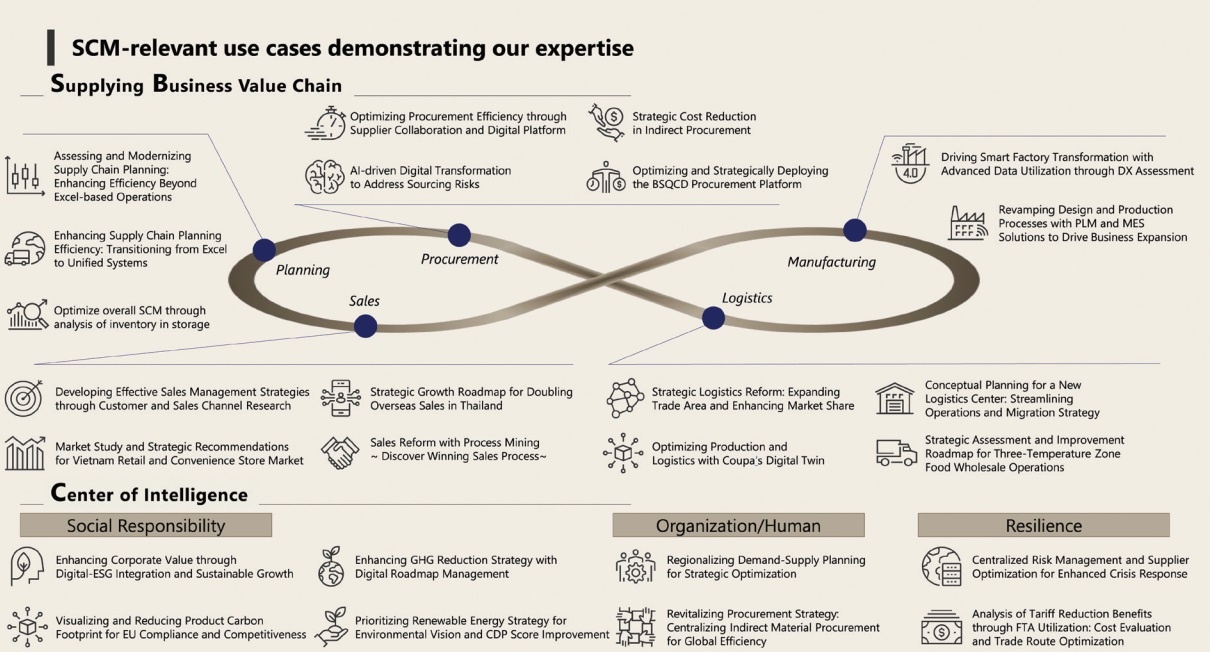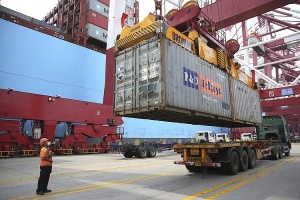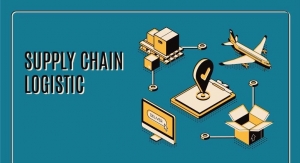Driving the supply chain revolution
However, digital transformation and innovative strategies are reshaping Vietnam’s supply chains, particularly in the critical role of logistics and distribution optimisation.
 |
| Ryohei Oda, managing director ABeam Consulting Vietnam |
Vietnam’s supply chain management software market is on an impressive growth trajectory. Projections from the IMARC Group indicate that the market will reach nearly $443.2 million by 2032, expanding at a compound annual growth rate of 9.55 per cent from 2024 to 2032.
This growth is fuelled by several factors of a thriving e-commerce sector which is expected to hit $57 billion in sales in 2025, a young population embracing digital solutions, and an increasing internet penetration across the country. In addition is rising foreign investment, particularly from Japan, the second-largest foreign investor in Vietnam.
Vietnam's logistics sector is undergoing rapid digital transformation, with 68 per cent of companies investing in new technologies despite infrastructure challenges. Key innovations include warehouse and transportation management systems, AI-driven forecasting, and Internet of Things tracking solutions. This tech helps companies overcome infrastructure gaps while meeting the demands of Vietnam's expanding manufacturing and e-commerce sectors.
ABeam’s impact in Vietnam
ABeam Consulting has emerged as a key player in Vietnam’s supply chain revolution. The company’s approach to logistics and distribution optimisation has yielded impressive results in a range of sectors.
We have implemented an advanced warehouse management system for a major Vietnamese retailer, which resulted in a 20 per cent improvement in inventory accuracy and a 5 per cent reduction in out-of-stock rates.
In evaluating manufacturing efficiency, ABeam is providing a data-driven optimisation system that enabled a manufacturing client to cut logistics costs by 15 per cent and reduce carbon emissions by 10 per cent.
Elsewhere, ABeam’s work with Alps Alpine, a global electronics manufacturer, streamlined operations across 81 global locations, enhancing supply chain visibility and efficiency.
 |
A robust strategy
We suggest companies looking to optimise their logistics and distribution operations in Vietnam should consider their investment in digital technologies. To achieve this, they have to implement dedicated management systems and other digital solutions to streamline operations and enhance visibility.
Moreover, companies must focus on last-mile delivery because in Vietnam’s rapidly growing e-commerce market, efficient last-mile delivery is crucial. Companies should consider partnerships with local delivery services or invest in their own last-mile capabilities.
Companies must also develop a robust risk management strategy. Given Vietnam’s unique challenges, companies should implement comprehensive risk management plans to address potential disruptions.
Meanwhile, sustainability must be highlighted in all activities or companies will not succeed. They must implement green logistics practices to reduce environmental impact and meet growing consumer demands for sustainable operations.
Other important ideas are collaborations with local partners, leveraging knowledge and networks of local logistics providers to navigate Vietnam’s complex market, and investment in training programmes to ensure the workforce can effectively use new technologies and adapt to changing market conditions.
As Vietnam continues its rapid economic growth, the importance of logistics and distribution optimisation in supply chain management will only increase. Companies that embrace digital transformation, focus on efficiency, and adapt to the unique challenges of the Vietnamese market will be well-positioned to thrive in this dynamic environment.
With firms like ABeam leading the way in innovative supply chain management solutions, Vietnam is poised to become a model for supply chain efficiency in Southeast Asia. By harnessing the power of Industry 4.0, we’re not only helping our clients become more competitive but also contributing to a more sustainable future for the logistics industry.
The revolution in Vietnam’s supply chain management sector, driven by logistics and distribution optimisation, is not just transforming individual businesses, but is reshaping the entire economic landscape of the country, paving the way for sustainable growth and increased global competitiveness.
| Modern technology will come in very useful in Vietnam across most markets. VIR’s Bich Ngoc talked with Yoshihiro Wake, lead of Transglobal Expansion Frontier at ABeam Consulting, on their development strategy in Vietnam and how they want to use such tech here. How does ABeam integrate big data and AI to optimise supply chains for its clients in Vietnam?
At ABeam, we’ve been successfully using digital twin technology to optimise logistics networks. This technology allows companies to visualise vast amounts of data through AI-driven analysis, which significantly enhances the efficiency of their supply chains. It’s not just a one-time visualisation, we provide ongoing monitoring that enables organisations to implement the PDCA (plan-do-check-act) cycle and respond quickly to changes in the market. We believe strongly that this technology can be very effective here. Given Vietnam’s geography, which is divided between north and south, it's crucial to consider more than just costs when evaluating logistics hubs. We need to factor in a range of elements, such as customer delivery times and other specific needs. That’s why conducting simulations to evaluate both current and future scenarios is vital for crafting the best strategies. Vietnam is a fast-changing market with many positive uncertainties, and our goal is to help clients navigate this dynamic environment through continuous simulations and improvements. Can you share a success story where ABeam's digital transformation solutions significantly improved a Vietnamese client's logistics operational efficiency? In the beverage industry, one of our clients faced significant challenges due to a scattered logistics network and a lack of effective risk assessment in response to changing business conditions. Without a clear vision, they struggled to adapt to market shifts promptly. To address this, we implemented Coupa as a digital twin to model their logistics network. However, simply using the tool wasn't enough; our logistics expertise played a crucial role. We provided guidance on the types of data to consider and how to analyse various production and transportation scenarios, enabling the identification of key issues and effective optimisations. As a result, we significantly improved operational efficiency and reduced costs. More importantly, we fostered a culture of continuous improvement, equipping the client to better adapt to future changes in the market. What key performance indicators has ABeam identified as most crucial for measuring the success of supply chain digital transformation in the Vietnamese market? We believe that the key to measuring success in the digital transformation of supply chains in Vietnam lies in optimising operations through process performance indicators. By leveraging process mining and task mining, ABeam analyses system logs to gain insights into the overall state of operations – insights that traditional interviews alone cannot provide. This approach enables businesses to identify the critical issues they need to address. Among various metrics, inventory turnover days stand out as a significant indicator. However, simply focusing on inventory when this figure declines is insufficient. ABeam emphasises the importance of visualising the entire process flow to identify root causes, such as outstanding orders and delays, helping organisations understand why certain products are problematic. ABeam Consulting’s strength lies in its unique ability to visualise challenges through innovative digital means and provide tailored solutions backed by deep expertise. Relying solely on traditional consultant interviews is no longer sufficient; by harnessing cutting-edge digital technologies, ABeam uncovers complexities that may remain hidden through conventional human analysis. A thorough understanding of diverse processes and a proactive approach to addressing issues are essential for achieving meaningful improvements in supply chain operations. |
 | Vietnam SuperPort to elevate supply chain capabilities Vietnam SuperPort, a joint venture between YCH Group (Singapore) and T&T Group (Vietnam), has launched the new vision to enhance the country's logistics capabilities. Yap Kwong Weng, CEO of Vietnam SuperPort spoke to VIR's Nguyen Huong about the launch. |
 | US firm iPower expands supply chain with first shipment from Vietnam US firm iPower Inc. announced on October 16 the first successful shipment of its first purchase from Vietnam. |
 | Applying advanced tech to supply chain development Vietnam needs to integrate advanced technologies such as AI and machine learning to optimise processes and enhance overall efficiency within its supply chain. |
What the stars mean:
★ Poor ★ ★ Promising ★★★ Good ★★★★ Very good ★★★★★ Exceptional
Related Contents
Latest News
More News
- PM outlines new tasks for healthcare sector (February 25, 2026 | 16:00)
- Ho Chi Minh City launches plan for innovation and digital transformation (February 25, 2026 | 09:00)
- Vietnam sets ambitious dairy growth targets (February 24, 2026 | 18:00)
- Masan Consumer names new deputy CEO to drive foods and beverages growth (February 23, 2026 | 20:52)
- Myriad risks ahead, but ones Vietnam can confront (February 20, 2026 | 15:02)
- Vietnam making the leap into AI and semiconductors (February 20, 2026 | 09:37)
- Funding must be activated for semiconductor success (February 20, 2026 | 09:20)
- Resilience as new benchmark for smarter infrastructure (February 19, 2026 | 20:35)
- A golden time to shine within ASEAN (February 19, 2026 | 20:22)
- Vietnam’s pivotal year for advancing sustainability (February 19, 2026 | 08:44)


 Tag:
Tag:



















 Mobile Version
Mobile Version